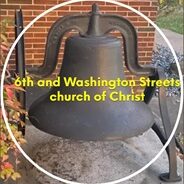 In both Psalm 14:1 and Psalm 53.1, King David begins with this attention grabbing declaration: “The fool says in his heart, ‘There is no God.'”
In both Psalm 14:1 and Psalm 53.1, King David begins with this attention grabbing declaration: “The fool says in his heart, ‘There is no God.'”
The term “fool” in this context is not merely an insult but a description of a person who lives without regard for God. David’s statement emphasizes that denying God’s existence is a reflection of a heart that has turned away from wisdom and truth. To say “there is no God” is to reject the very foundation of moral order, purpose, and meaning in life.
David continues in Psalm 14 to describe the behavior and mindset of those who deny God. He notes that they are corrupt, their deeds are vile, and there is no one who does good. This is not to say that all atheists are inherently immoral, but rather that a worldview without God ultimately lacks a moral anchor. Without an acknowledgment of a higher authority, ethical standards become subjective and malleable.
The reality of God’s existence is affirmed in numerous ways through the scripture. Creation itself testifies to the existence of a Creator, as Paul writes in Romans 1:20: “For since the creation of the world God’s invisible qualities—his eternal power and divine nature—have been clearly seen, being understood from what has been made, so that people are without excuse.” The intricate design of the universe, the complexity of life, and the moral law written on our hearts all point to the existence of a great and sovereign God.
In the New Testament, the life, death, and resurrection of Jesus Christ provide the ultimate revelation of God’s reality and love for humanity. Through Jesus, we see God’s character, His compassion, and His redemptive plan for mankind. To deny God’s existence is to reject the proof of His presence and work in the world.
Though it may prove difficult, it is essential for disciples of Christ to approach those who doubt or deny God’s existence with compassion and understanding. Engaging in thoughtful and respectful dialog, sharing our faith in word and deed, can be powerful testimonies to God’s reality.
Let us be reminded of the wisdom found in acknowledging God’s existence and sovereignty. May we be bold in our faith, yet gentle and respectful in our interactions with others. The fool may say in his heart, “There is no God,” but we know and proclaim that God is ever-present, actively involved in our lives, and worthy of all praise. Pray for those who do not believe in God to come to a knowing and saving faith in God through Christ, for the world desperately needs to know Him and His love.
![]()
